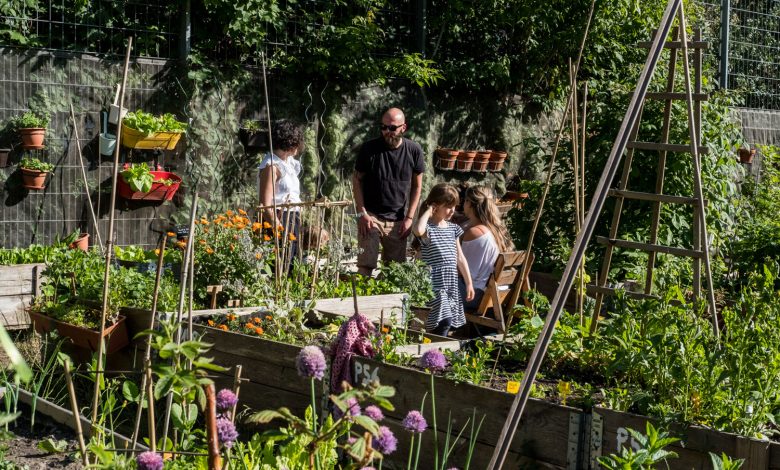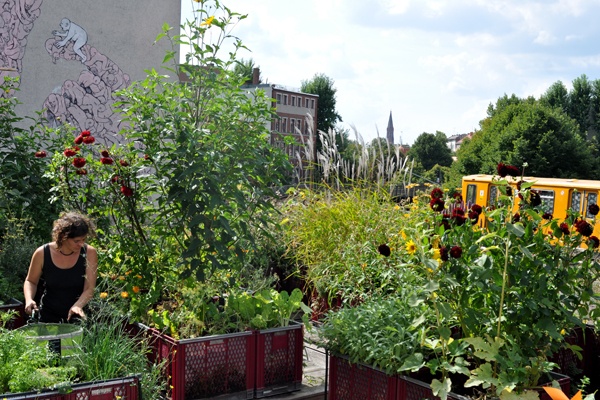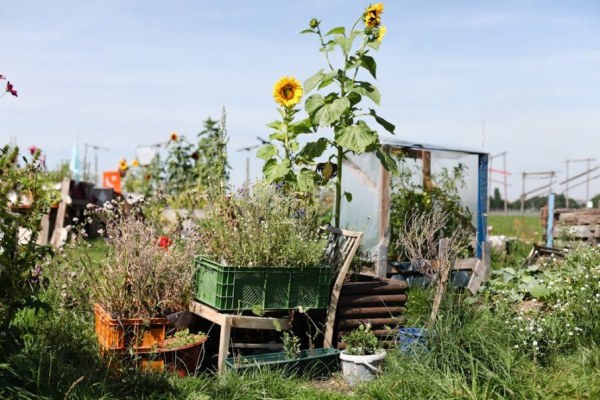Urban gardening in Berlin. Urban gardens in Germany

Hello everyone! On our journey through the world’s urban gardens, today we are going to talk about urban gardening in Berlin. As you know, it is the capital of Germany and one of the sixteen German federal states, located in the northeast of this country. With a population of 3.4 million inhabitants, Berlin is the most populous city in the country, as well as the second largest city and the fifth urban agglomeration among the countries of the European Union.
Berlin is a cultural, artistic and busy center of all kinds of alternative thoughts. Like the rest of the country, its population is highly committed to preserving the environment and organic farming, as we can see in its urban gardens, which we will see below.
TYPES OF URBAN GARDENS IN BERLIN
Kleingarten and Schrebergarten
The kleingärten or schrebergärten are defined as land between 200 and 400 m 2 used mainly for horticulture and flower cultivation for self-consumption, where at least two thirds of the land must be dedicated to the cultivation of vegetables. This group constitutes 4.6% of the total area of Berlin and 12% of the area of green spaces in the city.
The most remarkable feature of the management of the orchards for rent is that the contracts are made between the municipality and an association of market gardeners (Kleingartenvereine, Schrebengartenvereine) instead of being made directly with private individuals. The municipality provides the land, creates the water supply system, and other infrastructure related to accessibility and hygiene (such as toilets or drinking water). Local associations lease the land, divide it into individual plots, collect rents, organize changes of winners and maintain common areas.

Each association is independent and self-managed, organizing and grouping itself at different levels: community, district, municipality, region and state.
In Berlin there is a large number of local associations, which are organized in groups by administrative districts of the city. Its function is the intermediary between local associations and the City Council. As Berlin is both a municipality and a state, these groupings form the coordinating Landesverband Berlin der Gartenfreunde, which acts at the regional level, being in charge of studying the policies related to orchards, and advising on the general rules of design, lease, and management., in addition to publishing a newspaper.
The various regional associations constitute the Bundesverband Deutscher Gartenfreunde (Federal Union of Urban Gardens), which also belongs to the Office International du Coin de Terre et des Jardins Familiaux. This international organization has 14 associations from different European countries, and acts as a pressure group in the European Parliament for the conservation of urban gardens.
- Orchards on railway land: There are also orchards that do not belong to this group, for example those that come from the railway company, and that are located on land that was reserved for future railway uses. In the 1990s, the company decided to sell those lands and offer them to the neighbors.
- Other urban garden projects In Berlin it is particularly difficult to track alternative practices to the kleingärten association structure, as there are a large number of non-formal projects in many districts (community and intercultural initiatives) due to the large number of vacant lots and plots of land. unemployed people left in the city after unification. However, the process of urban reform is very intense and many of these lands are transformed, so the permanence of non-formal orchards is difficult.
SOME URBAN ORCHARDS IN BERLIN…
«Interkulturelle Nachbarschaftsgärten am Mariannenplatz» (Intercultural Neighborhood Gardens at Mariannenplatz)
It is an urban garden that stands on Mariannenplatz on the grounds of the Bethanien building, in the Kreuzberg neighborhood. Formed by a group of people looking for a farming area as part of the reorganization of the building, an old hospital, and introducing citizen participation. It is part of the «Intercultural Gardens» movement where immigrants meet local people with the opportunity to carry out cultural exchanges.
Prinzessinnengärten
Community farming center where a wide variety of environmental projects are developed. A central activity is environmental education with a focus on sustainable food management (ecological farming, urban farming, biodiversity, seasonality and regionality, closing resource cycles, healthy eating). Movie evenings and information talks are also organized on different topics such as sustainable food systems, recycling and reuse or urban nature. Since 2009, they have colonies of bees and each season they hold a workshop on organic beekeeping.

Gärten Rosa Rosae
A community garden of all and for all, in Berlin Friedrischain. It is a public green area where vegetables, fruits and ornamental plants are grown. In addition, it has a meadow space, and even an area for barbecues. Everyone who wants to be part is invited.
Rubëzahl Gemeinschaftsgärten
It is a 600 m2 orchard in the old Tempelholf airport, conceived for the residents of Neukölln. A place for learning having a good time ploughing, sowing and harvesting. The fruits and vegetables grow in buckets, wooden boxes and other cultivation containers because the City Council does not allow plantations on land. We are looking for people with ideas and enthusiasm for the integration and improvement of the neighborhood.
Allmende-Kontor
A support network for Berlin’s community gardens and urban farming projects. The network works cooperatively with community gardens, as well as different social and civil initiatives, foundations, research supports, and the government – in Berlin and throughout Germany.

Since 1989, the spaces abandoned after the fall of the wall have led to the creation of multiple types of urban gardens that have allowed these lands to be reused to grow healthy food and promote environmental conservation. I hope that the article has been interesting for you, and that if you know of any other orchard in Berlin, you can show it to us.


![Photo of How to Plant Chufa: Planting Method in a [Complete Guide]](https://www.complete-gardening.com/wp-content/uploads/2022/08/how-to-plant-chufa-planting-method-in-a-complete-guide-390x220.jpg)

![Photo of Tagete: [Cultivation, Care, Irrigation and Reproduction]](https://www.complete-gardening.com/wp-content/uploads/2022/08/tagete-cultivation-care-irrigation-and-reproduction-390x220.jpg)